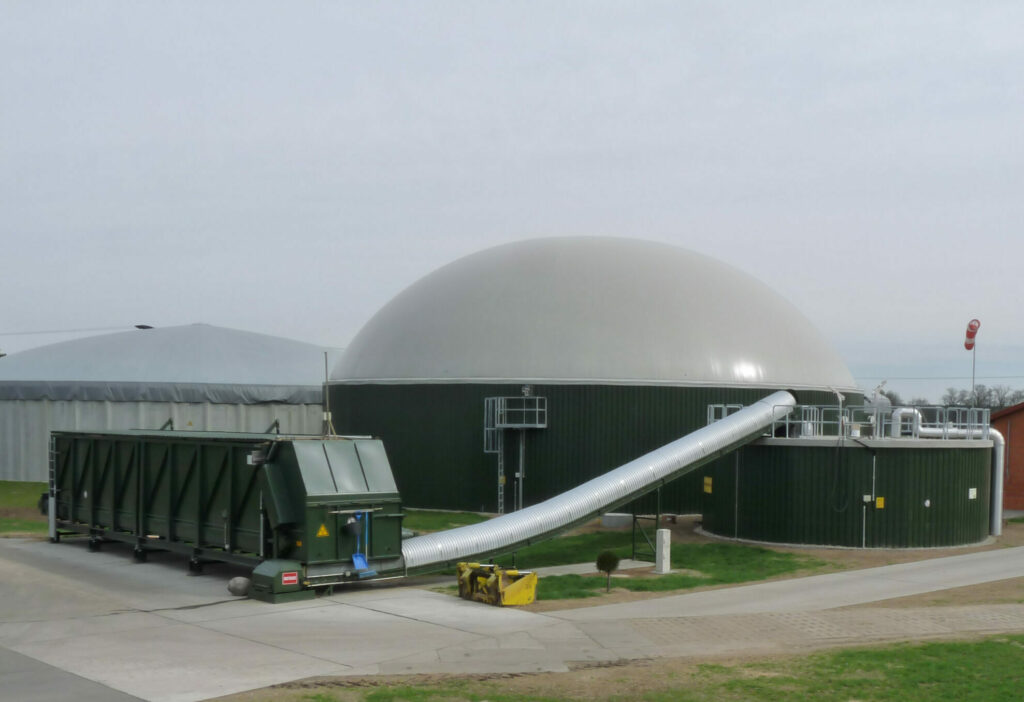
Home > Fachsektionen > Halle > Flexible biogas plants
In order to compensate for fluctuating electricity generation from wind and photovoltaics, biogas plants are increasingly being equipped for demand-oriented electricity production.
The “flexigast” research project aimed to develop a process for demand-oriented biogas production adapted to the electricity market with a simultaneous secure heat supply for connected consumers on the basis of targeted variations in fermentation temperatures in the fermenters.
A method was developed that analyzes the temperature and load tolerance of the fermenter biology by means of qPCR-based identification of the viable proportions of methanogenic species.
When the CHP unit is switched off according to a demand-based electricity schedule, the fermentation temperature is lowered in a targeted manner. When the CHP unit starts up again, the temperature is increased. The stored heat from the secondary fermenter can be used as a heat source in 2-stage BGAs, for example.

The temperature variations were combined with flexible feeding. The feeding should only be supportive and coordinated with the targeted temperature changes and should also relate to common, practice-relevant substrates or residues with relatively slow decomposition behavior.
A decrease in the average methane yield and process stability can be avoided through controlled process management. The use of a heat pump improves the potential and controllability of the required temperature reductions and at the same time significantly increases the temperature and the usable amount of heat for external consumers.
The development of the qPCR detection method contributes to a new quality for process monitoring in complex heterogeneous fermentation rooms.
The temperature profile used led to temporary losses in gas formation rates. However, the qPCR method for analyzing specific groups of microorganisms was able to show that no irreversible damage occurred to the analyzed microbiome.
It was thus possible to obtain reliable information on changes in biodiversity as a result of variations in process variables such as temperature, etc., which in turn can help to clarify suboptimal plant conditions in bioprocesses. Irrespective of the high relevance of microbiological status assessment in biogas processes, this approach is not limited to this, but could also be transferred to similarly complex systems (e.g. wastewater treatment, denitrification, composting, ensiling).
bue Anlagentechnik GmbH
Technical consulting for systems engineering Bernd Felgentreff
Magdeburg-Stendal University of Applied Sciences
ORmatiC GmbH
Duration: 01.02.2021 – 30.09.2023
Funding body: PTJ Project Management Jülich on behalf of the BMBF
© Gesellschaft zur Förderung von Medizin-, Bio- und Umwelttechnologien e.V.
